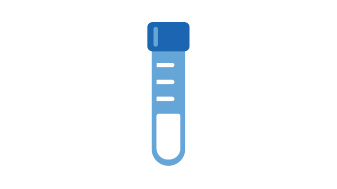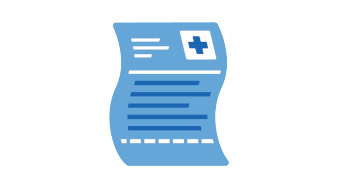The South West Genomic Laboratory Hub (SWGLH) offers the following genomic tests for patients with haematological malignancy:
- Karyotyping, FISH, direct mutation, molecular monitoring and gene panel tests for haematological malignancy affecting the blood and bone marrow. The drop down list choices on this page will take you through the requesting process.
- For FISH, direct mutation and gene panel tests for lymphoma and related disorders not affecting the blood or bone marrow: Please see requesting a genomic test for solid tumours
- Whole genome sequencing for any haematological malignancy in the children and young adults and in all patients with acute leukaemia: Please see requesting a whole genome sequencing test
Step 1 Check patient eligibility
Eligible haematological malignancies and the available tests are shown in the National Genomic Test Directory for Cancer (NGTD).
- The NGTD indicates several possible alternative tests for some indications. Regional policy about the best test for each indication is being devised by the SWGLH and the haematological malignancy Cancer Alliance Advisory Groups (CAG)
Step 2 Collect the sample(s)
Where possible, samples for diagnostic or monitoring genomic tests should be collected alongside other samples for the regional Specialist Integrated Haematological Malignancy Service (SIHMDS).
- Please ensure that you verify the identity of the patient prior to taking the sample.
- Bone marrow aspirate is the preferred substrate for Haematological malignancy testing.
- Blood or other tissue may be suitable where sufficient (>20%) involvement is identified e.g. for acute leukaemia with a high circulating blast count. Pleural fluid or other tissue with a malignant infiltrate may also be suitable but should be discussed with the SWGLH, contact information below
- 1-2ml of bone marrow aspirate or 5-10ml of blood collected into EDTA is required for direct mutation, molecular monitoring or gene panel tests
- 1-2ml of bone marrow aspirate or 5-10ml of blood collected into lithium heparin or heparinised media is required for karyotype and FISH
Step 3 Complete the request form
All samples for genomic testing for haematological malignancy should be accompanied by a fully completed
Regional BHODS Request Form v3 (nbt.nhs.uk)
Step 4 Transportation of sample and request form to the SWGLH
You will then need to transport samples and request form to the SWGLH
- To maintain clinically useful test turnaround times, samples should be transported urgently to the SWGLH for processing and testing.
- For samples requiring RNA analysis there is a 72 hour cut-off for receipt of samples as reliable quantitation is not possible from follow-up samples older than 72 hours. Samples received that are older than 72 hours will not be processed and a repeat sample will be requested.
- Samples will usually be sent internally to the local pathology specimen reception and, then onwards, to the SWGLH at the Bristol Genetics laboratory site, using the rapid transport routes that have been established from all SW Trusts.
- Refer to the Sample requirement and Test Pages for this information
Step 5 What are the turnaround times for the test?
Turnaround times (TATs) for genomic tests are continually refined through the ongoing review of testing standards by NHSE, the SWGLH and CAG working groups.
- As a guide, example current TATs are:
- PML-RARA FISH <24 hours
- BCR-ABL1 PCR, ALL FISH <3 days
- Urgent karyotype/FISH <7 days
- Urgent gene panel, direct mutation tests, CML monitoring <14 days
- Routine karyotype, FISH, panel <21 days
SWGLH Haematological malignancy Clinical Scientist Team Contact Info

email at SWGLHhaemonc@nbt.nhs.uk or telephone at 0117 4146168
SWGLH Haematological malignancy link to SiHMDS

Further information can be found on the Integrated Haematological Malignancy Diagnostics service site and for particular reference the back of the Bristol Haemato-Oncology Diagnostic Request Form:
SWGLH Haematological malignancy - Clinical Guide
Page last updated 18/04/2024

